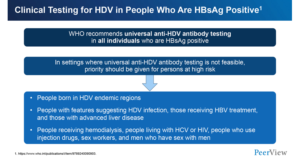
Researchers at the Icahn School of Medicine at Mount Sinai have discovered a way that ovarian cancer tumors manipulate their environment to resist immunotherapy and identified a drug target that could overcome that resistance.
The study, published in the October 30 online issue of Cell, used a cutting-edge spatial genomics technology and preclinical animal models, with tumor specimens from ovarian cancer patients further validating the findings.
The researchers found that ovarian cancer cells produce a molecule called Interleukin-4 (IL-4), which is typically associated with asthma and the skin condition eczema, also known as atopic dermatitis. The study went on to find that the cancer cells used IL-4 to create a protective environment that kept away killer immune cells, making the tumors resistant to immunotherapy. A drug, dupilumab, which blocks IL-4’s activity, has been approved by the Food and Drug Administration (FDA) and is already used to treat asthma and eczema. This new study suggests dupilumab or similar drugs could be repurposed to enhance immunotherapy for ovarian cancer.
Ovarian cancer is one of the most deadly cancers; 50 percent of patients die within five years of diagnosis. While immunotherapy drugs such as pembrolizumab, which target the PD-1 molecule, have demonstrated efficacy in treating melanoma and lung cancer, they have not significantly improved survival rates in ovarian cancer. This is partly because ovarian tumors have fewer mutations, making them harder for the immune system to recognize. Additionally, research suggests that these tumors may resist immunotherapy by creating barriers that prevent immune cells from infiltrating their borders. The critical question, say the investigators, has been: how do tumors establish these protective environments?
To address this question, the research team, led by Alessia Baccarini, PhD, Assistant Professor of Immunology and Immunotherapy, and Brian D. Brown, PhD, Director of the Icahn Genomics Institute at Icahn Mount Sinai, used a novel genomics technology known as Perturb-map. Perturb-map enhances traditional gene-editing CRISPR screening-;where hundreds of genes are simultaneously “perturbed”-;by incorporating state-of-the-art spatial imaging. This enables each gene’s role in controlling the tumor environment to be elucidated. Their experiments revealed that removing the IL-4 gene from ovarian cancer cells rendered the tumors susceptible to anti-PD-1 therapy.
Surprisingly, the IL-4-deficient cancer cells were eliminated by the immune system even when mixed within tumors containing IL-4-producing cancer cells, a phenomenon known as intratumoral heterogeneity, which also contributes to drug resistance in cancer.”
Brian D. Brown, Professor, Genetic Engineering, Mount Sinai School of Medicine
The researchers then tested a combination of anti-PD-1 and IL-4 receptor-blocking drugs in mice with aggressive metastatic ovarian cancer and found that this combination treatment significantly extended their survival.
Additional preclinical studies demonstrated that ovarian cancer uses IL-4 to program macrophages, a type of immune cell, into protectors of the cancer cells. The IL-4-programmed macrophages prevented T cells from killing the cancer cells. However, when IL-4 was blocked, the local environment surrounding the cancer cells changed, and this left the malignant cells susceptible to being eliminated by the immune system.
To further validate their findings, the team examined specimens from human ovarian tumor resections and saw that the patients’ cancer cells also produced IL-4. Moreover, analysis of single-cell RNA sequencing data from patient tumors-;which examines how genes are expressed in cells-;revealed that the macrophages displayed a strong IL-4 signature, suggesting that IL-4 is playing a similar role in human ovarian cancer and may be one of the reasons patients have not benefited from immunotherapy.
“Ovarian cancer has almost been written off as non-responsive to existing immunotherapy, so it was quite stunning to us that by just blocking this one molecule, IL-4, and altering the tumor’s microenvironment, we could make these difficult-to-treat tumors more treatable,” adds Dr. Brown. “This is further evidence that targeting the tumor’s neighborhood, not just the cancer cells, can be beneficial.”
While these findings are encouraging, the investigators stress that clinical trials are essential to determine whether targeting IL-4 can enhance patient outcomes. Given that dupilumab is already FDA-approved for asthma and eczema, there is potential for swift clinical testing alongside immunotherapy to enhance survival in ovarian cancer patients. Thomas Marron, MD, PhD, Director of the Early Phase Trial Unit at Mount Sinai and a colleague of Drs. Brown and Baccarini, has already been running a clinical study to test whether dupilumab can improve anti-PD-1 immunotherapy in patients with lung cancer, and several patients have shown beneficial responses.
“Ovarian cancer is a disease that’s so hard to catch early and once diagnosed, it’s often too late. I am excited that these findings may make a difference in patients’ lives. The IL-4 pathway is already targeted for diseases like eczema, and I am hopeful that if we target it in ovarian cancer, we can help women facing this terrible disease,” says Dr. Baccarini.
The paper is titled “Ovarian cancer-derived IL-4 promotes immunotherapy resistance.”
Source:
Journal reference:
Mollaoglu, G., et al. (2024) Ovarian cancer-derived IL-4 promotes immunotherapy resistance. Cell. doi.org/10.1016/j.cell.2024.10.006.




